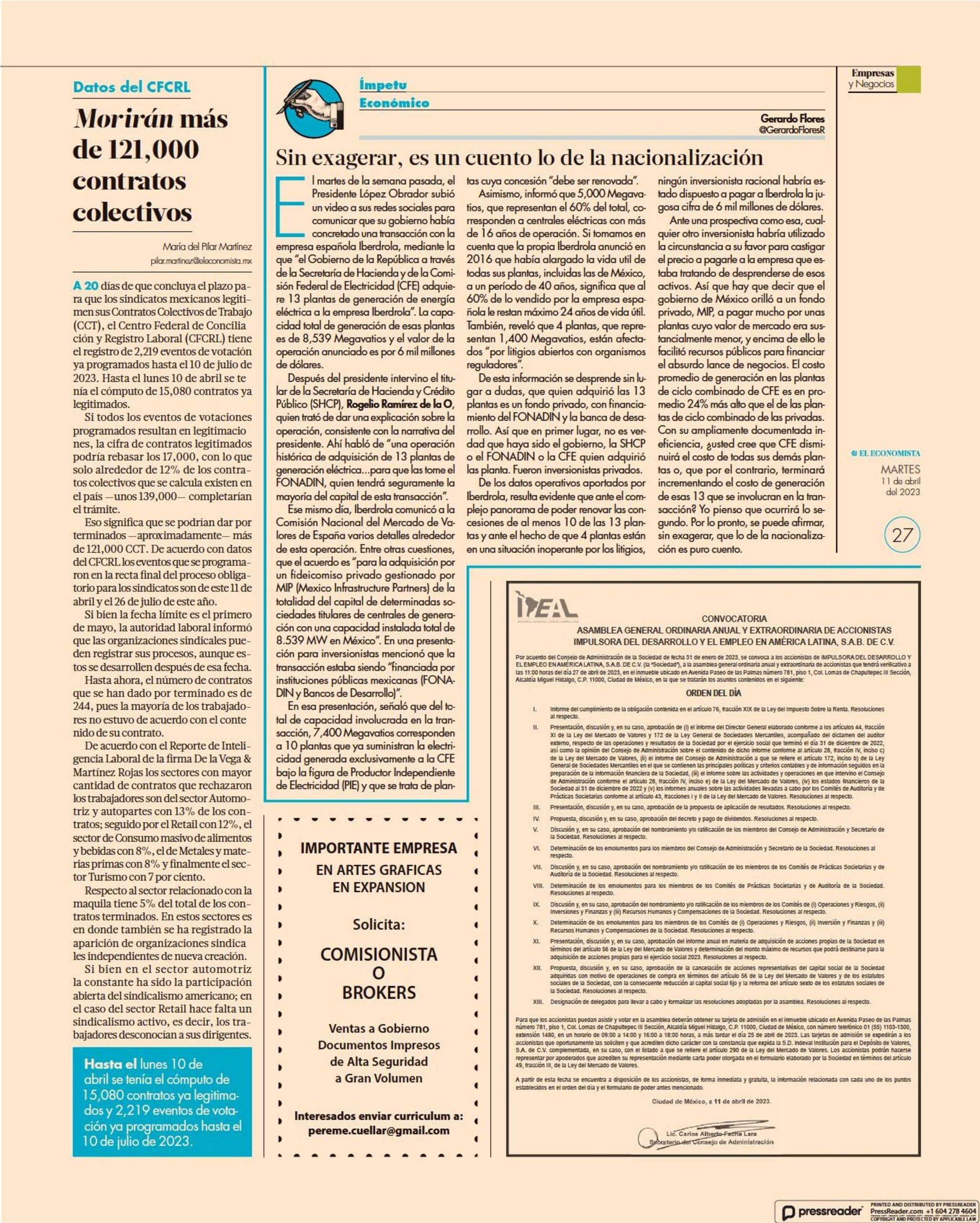Note published on April 11 in El Economista, Empresas [Companies] Section by María del Pilar Martínez.
Read original source
As of Monday, April 10, 15,080 agreements had been recorded as having been legitimized and there were 2,219 programmed voting events scheduled for up to July 10, 2023.
With 20 days to go before the deadline for Mexican unions to legitimize their Collective Bargaining Agreements (CCTs), the Federal Center for Labor Conciliation and Registration (CFCRL) has 2,219 registered voting events scheduled for up to July 10, 2023. As of Monday, April 10, 15,080 agreements have been recorded as having been legitimized.
If all the scheduled voting events result in legitimations, the number of legitimized agreements could exceed 17,000; with this, only around 12% of the collective bargaining agreements that are estimated to exist in the country – around 139,000 – would complete the process.
This means that approximately 121,000 CCTs could be terminated. According to data provided by the CFCRL, the events that were scheduled in the final stretch of the mandatory process for unions go from April 11 to July 26 of this year.
While the deadline is the first day of May, the labor authority notified that union organizations can register their processes even if they take place after this date.
Up until now, the number of agreements that have been terminated is 244, because the majority of the workers were not satisfied with the contents of their agreements.
In accordance with the Labor Intelligence Report prepared by the De la Vega & Martínez Firm, the sectors with the highest number of agreements that were rejected by the workers are the Automotive and auto parts sector, with 13% of the rejected agreements; followed by Retail, with 12%, The Food and Beverage Mass Consumption sector with 8%, Metals and Raw materials with 8% and, lastly, the Tourism sector with 7 percent.
In regard to the Maquila sector, it accounts for 5% of the total of terminated agreements. These sectors are the ones in which the appearance of newly created independent union organizations has also been registered.
While the constant in the automotive sector has been the open participation of American unionism, there is a need for active unionism in the case of the Retail sector, that is, workers did not know who their leaders were.






